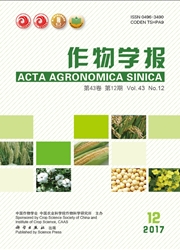

 中文摘要:
中文摘要:
The impacts of nighttime post-anthesis warming on rice productivity and grain quality in East China were evaluated for two cultivars, II You 128, an indica rice, and Wuyunjing 7, a japonica rice. Warming by 3.0 °C stimulated the nighttime respiration rate and decreased the photosynthesis rate, resulting in significant decreases of 21.2% and 24.9% in aboveground biomass accumulation for II You 128 and Wuyunjing 7, respectively. Warming significantly reduced the rates of seed setting and grain filling, especially of inferior kernels(those lower in panicles), while the filling rate of superior kernels remained almost unchanged. As a result, 1000-grain weight and grain yield were respectively 3.7% and 30.0% lower for II You 128 and 12.8% and 34.3% for Wuyunjing 7 in warmed plots than in the unwarmed control. Nighttime warming also significantly reduced the grain milling and appearance quality of both varieties. More negative effects of warming on inferior than on superior kernels were found. The above results have important implications for rice variety cultivation in East China.
 同期刊论文项目
同期刊论文项目
 同项目期刊论文
同项目期刊论文
 期刊信息
期刊信息
